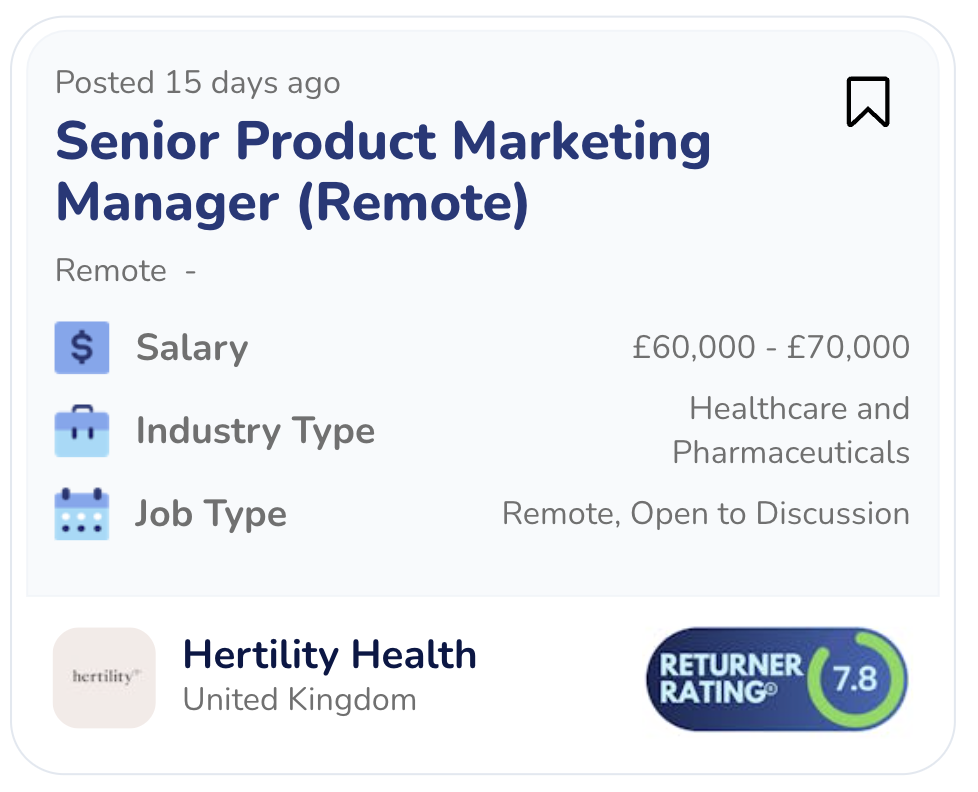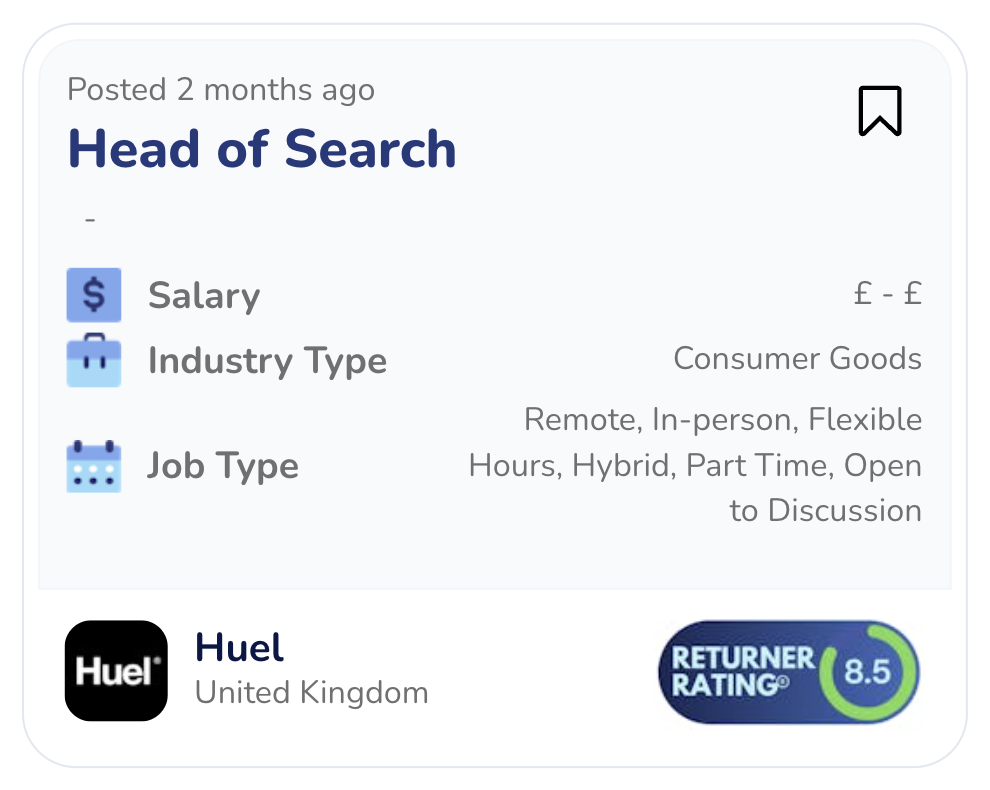Returning to work after mental health leave can feel overwhelming, but with the right approach, you can transition back into the workplace with confidence. Whether you’re worried about workplace conversations, managing workload and mental health, or explaining your career break, this guide will help you navigate your return while prioritising your well-being.
Jump to:
- How to transition back to work after mental health leave
- Creating a return to work plan after mental health leave
- Managing anxiety about returning to work
- Navigating workplace conversations about mental health leave
- Balancing workload and mental health after leave
- Rebuilding professional relationships after mental health leave
- Seeking workplace accommodations for mental health
- How to avoid burnout after returning to work
- Resources for employees returning after mental health leave
- Conclusion: Managing expectations when returning to work
How to transition back to work after mental health leave
Taking time off for mental health is a crucial step towards recovery, but returning to work can bring mixed emotions. Some people feel excited to regain structure and purpose, while others may experience anxiety about workplace stigma or job performance. The key to a smooth transition is preparation, communication, and self-care.
Does your CV keep getting auto-rejected?
Find out how to increase your chances of an interview in our free online CV Masterclass on Fridays at 12pm
Register for the CV MasterclassCreating a return-to-work plan after mental health leave
A structured plan can help ease you back into the workplace while maintaining mental wellness. Here are some key steps:
Managing anxiety about returning to work
Feeling anxious about returning to work after a mental health career break is completely normal. Here are some strategies to help:
- Prepare in advance – Review your role, responsibilities, and any changes that occurred while you were away.
- Plan your first week – Ease in by scheduling manageable tasks and allowing downtime between meetings.
- Use relaxation techniques – Mindfulness, deep breathing, or short walks during breaks can help manage stress at work.
- Access employee mental health programmes – Many companies offer workplace counselling services, mental health days, or employee mental health benefits. Check what’s available to you.
Navigating workplace conversations about mental health leave
Decide how much to share
You are not legally required to disclose the details of your leave. A simple statement like, “I took time off to focus on my health and I’m now ready to return,” is sufficient.
Prepare for questions
If colleagues ask, redirect the conversation by focusing on your return: “I’m looking forward to being back and catching up on everything.”
Know your legal rights
Employers cannot discriminate against you for taking mental health leave. If you experience unfair treatment, you can seek advice from organisations like Mind UK or Acas.
Balancing workload and mental health after leave
Maintaining mental health at work is essential to avoid burnout and sustain long-term well-being. Try these strategies:
Rebuilding professional relationships after mental health leave
Returning after time away can feel isolating, but reconnecting with colleagues helps re-establish your workplace support network.
Schedule informal catch-ups
- A coffee chat with a colleague can ease you back into workplace interactions.
Join workplace wellbeing activities
- Many offices offer mental health initiatives like meditation sessions or mental health awareness activities.
Engage with a mentor
- A trusted colleague or manager can offer guidance as you settle back in.
Does your CV keep getting auto-rejected?
Find out how to increase your chances of an interview in our free online CV Masterclass on Fridays at 12pm
Register for the CV MasterclassSeeking workplace accommodations for mental health
If you need adjustments to support your mental health at work, consider:
Flexible working
Requesting remote work or adjusted hours to manage stress.
Quiet spaces
A designated space for breaks if office environments feel overwhelming.
Regular check-ins
Scheduled meetings with a manager to discuss workload and well-being.
If your employer is reluctant to provide accommodations, remind them of their legal obligation under the Equality Act 2010 to support employees with mental health conditions.
How to avoid burnout after returning to work
Burnout can occur if you return to work too quickly or take on too much too soon. Protect your mental well-being by:
- Recognising early signs of burnout – Feeling exhausted, detached, or unmotivated are warning signals.
- Adjusting your workload – Speak to your employer about redistributing tasks if you feel overwhelmed.
- Practising self-care – Prioritise activities that support mental wellness, such as exercise, journaling, or therapy.
Resources for employees returning after mental health leave
Navigating the return-to-work process is easier with the right support. Here are some UK-based resources to help:
Watch our free course on how to write a return to work letter
Join the ivee community!
Join our Facebook group. Whether you’re looking to reconnect with like-minded returners, seek advice on returning to work after maternity leave, or share your experiences, our Facebook community is here to help you navigate your journey back into the workforce.
You’ll find:
👉 Latest regulatory changes regarding maternity leave
👉 CV templates for women returning to work
👉 Latest industry updates
👉 Resources and guides to help you on your job hunt
👉 Confidence-building events, webinars and advice on all aspects of returning to work
Our Facebook community
Conclusion: Managing expectations when returning to work

Your return to work is a journey, not a race. It’s okay to have ups and downs as you reintegrate into the workplace. Be patient with yourself, communicate openly, and prioritise mental wellness at work.
By planning ahead, setting boundaries, and using available support, you can successfully transition back to work after mental health leave while protecting your well-being.
If you’re currently looking for a new role that values mental health in the workplace, explore flexible job opportunities on ivee.jobs—where mental well-being and career success go hand in hand.
Want extra support in your return to work?
Join our return to work bootcamp and receive a personal CV review
Get your personal CV reviewFeatured Blog Posts









